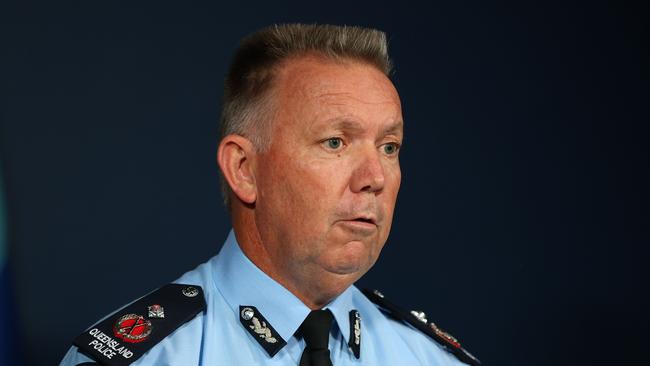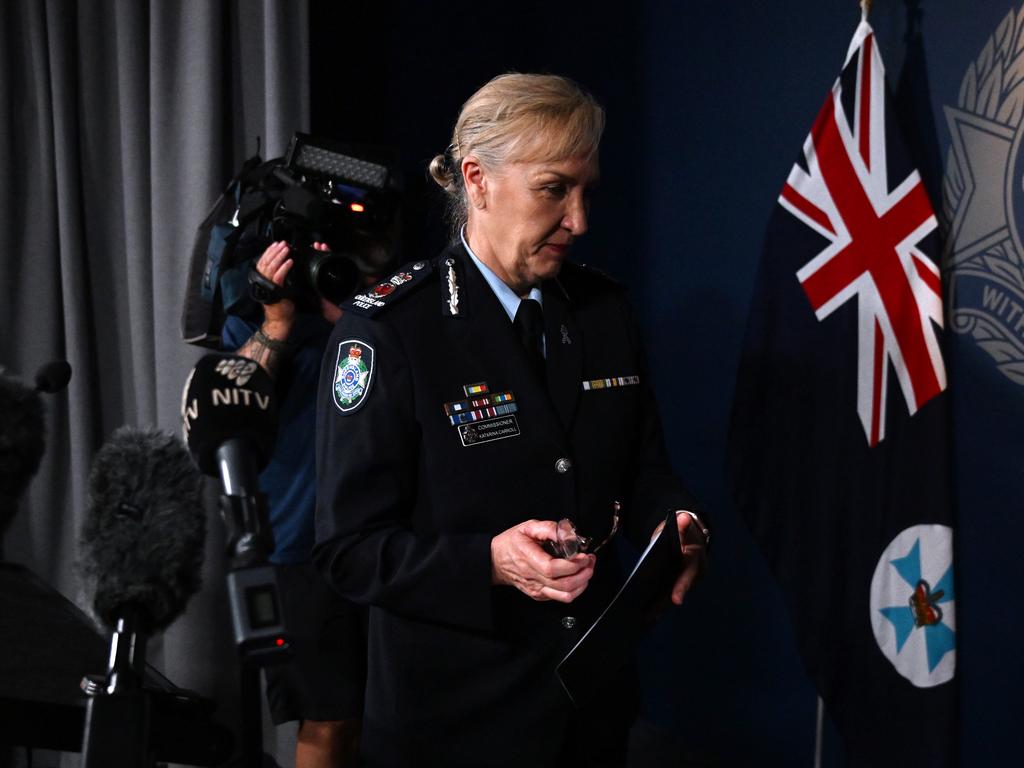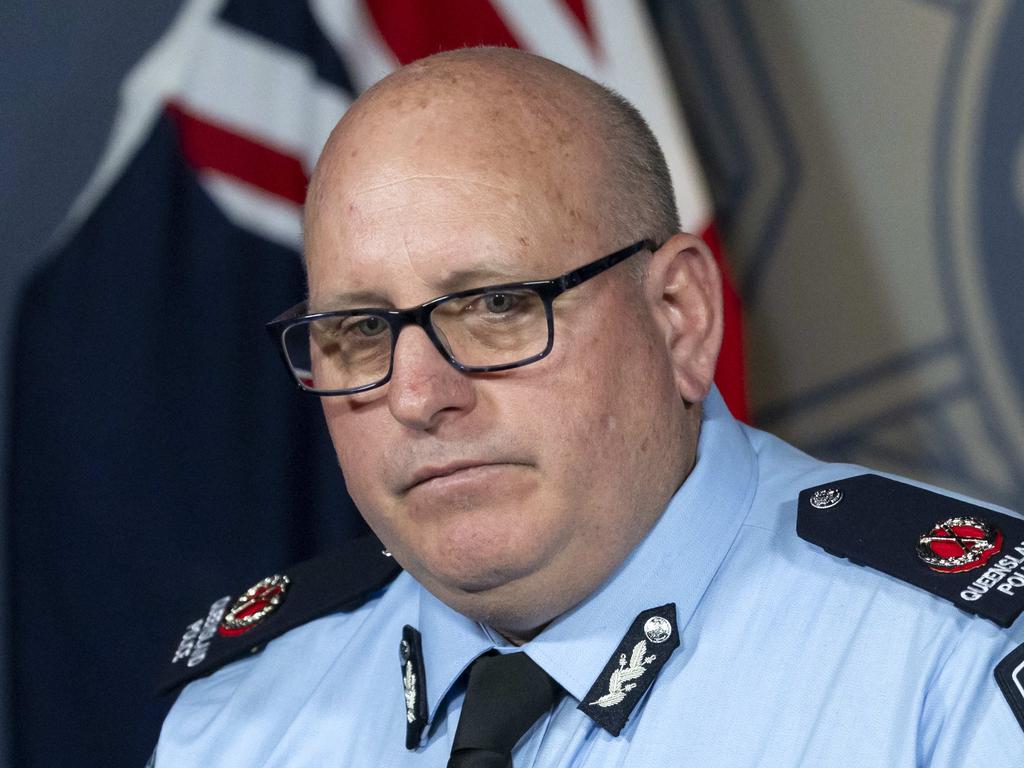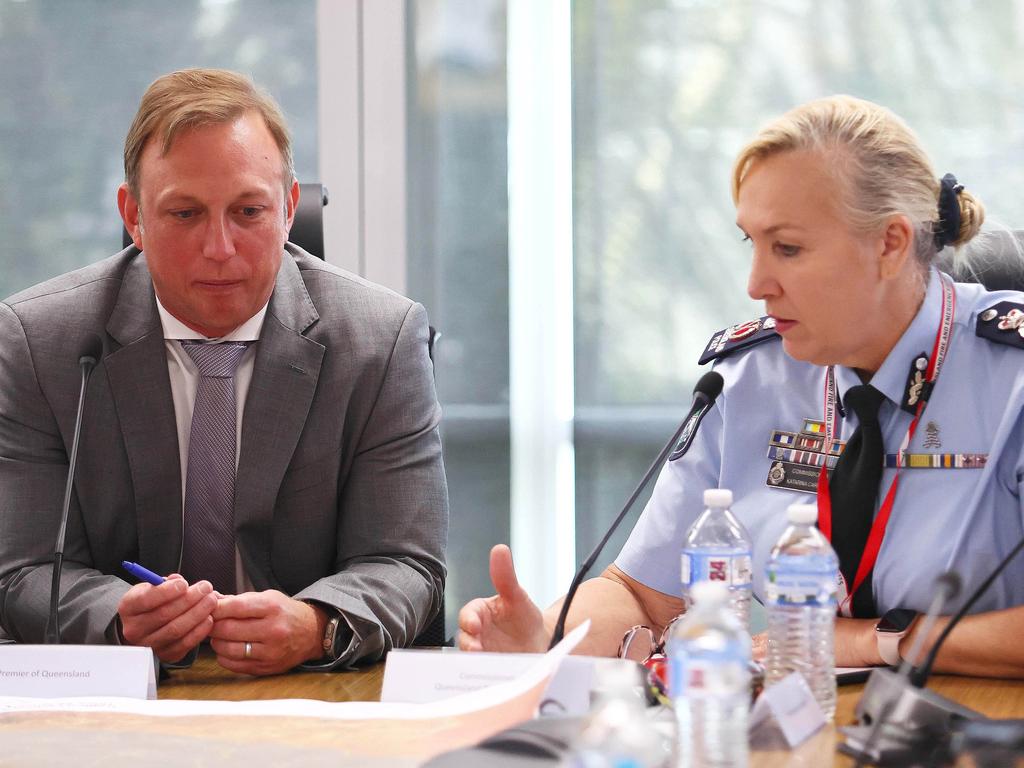Queensland Police get a grip on juvenile offending
Hard-pressed police in Queensland’s youth crime ‘capital’ of Townsville are hopeful that they have turned the tide, posting drops of up to 53 per cent in robbery, car theft and burglary rates.

Hard-pressed police in Queensland’s youth crime “capital” of Townsville are hopeful they have turned the tide, posting drops of up to 53 per cent in robbery, car theft and burglary rates.
Early data shows that a combination of police flying squads and a crackdown on repeat offenders breaching bail conditions has, for the first time, arrested the spate of juvenile offending that has become a political crisis for the state Labor government.
Taskforce Guardian – a roving police operation that pairs officers and youth justice workers to run patrols, bail checks and investigations – has allowed police to adopt a more muscular stance in cracking down on a hardcore of repeat and serious juvenile offenders numbering 454 individuals across the state.
Police figures, obtained by The Weekend Australian, show how crime fell dramatically in the nine weeks before and after the latest deployment of Taskforce Guardian to Townsville late last year.
Car theft by youths was down 44.3 per cent, falling from 451 to 251 episodes of unlawful use of a motor vehicle.
Unlawful entry with intent, another key marker of youth offending, dropped by 37.04 per cent, while robbery plunged by nearly 54 per cent – from 76 incidents to 35.
On longer term stats, comparing the past six months to the previous six, solved crimes committed by young offenders dropped 11 per cent in Townsville and 28 per cent across the state.
Deputy Police Commissioner Shane Chelepy, leading the youth crime response, is cautiously optimistic and believes a law change last year to make breaching bail conditions an offence for young offenders has helped.
“I am very hopeful and very buoyed by the stats I am starting to see, but we know there is a lot more work to do; recent polls in the community show a lot of people feel unsafe,” he said.
“Crime stats are important as indicators of our approach to youth crime, allowing us to change our strategies if they are needed, but to me, the overarching measure is ensuring that people feel safe and are safe.”
Recently released taxpayer-funded polling found fewer than half the people living in north Queensland (43 per cent) generally felt safe in their community, compared with statewide average of 54 per cent.
Wendy Ambrose, secretary of the Townsville Crime Committee, said intensity of the crime problem “ebbed and flowed”, depending on when hardcore offenders were in or out of detention, and she didn’t believe the respite would last.
“Definitely not,” she said. “History tells us that that just will not happen. I mean it is a beautiful city, we all love living here but the crime is wrecking it.
“It’s gotten to the stage now where people, particularly pensioners, are too scared to even go out shopping on their own because they’re confronted in the car parks and things.”
Youth crime looms as a potentially decisive vote-shifter in October’s state election, where Premier Steven Miles will seek a fourth term for the Labor government he inherited from Annastacia Palaszczuk last December. The ALP is keenly aware the issue could cost it office, especially in the regions where public anger at juvenile offending is white hot.
Three Labor-held state seats are up for grabs in Townsville. Asked why it had taken the police so long to get a handle on the problem there, Mr Chelepy said: “What this has allowed us to do is change our operating model and surge Taskforce Guardian, Public Safety Response Team and extra staff into areas to support local police when we see a spike.”
Former deputy police commissioner Paul Taylor, who is running to be mayor of Cairns at next month’s local government elections, called for the Queensland Police Service to be rebranded as a police “force”, saying: “I do think that sends a message. There needs to be a line in the sand.”
Bob Atkinson, a Queensland police commissioner who later took presiding roles at the royal commission into institutionalised child abuse and the ongoing inquiry into defence and veterans’ suicide, and who in 2018 recommended GPS tracking as an alternative to detaining youth offenders, said the little-used monitoring devices should be a bigger part of the mix.
Matt Notts, chief of a foundation that runs an after-dark youth centre in Townsville said it offered activities, classes and diversionary services that “helped reduce the burden on police”.







To join the conversation, please log in. Don't have an account? Register
Join the conversation, you are commenting as Logout